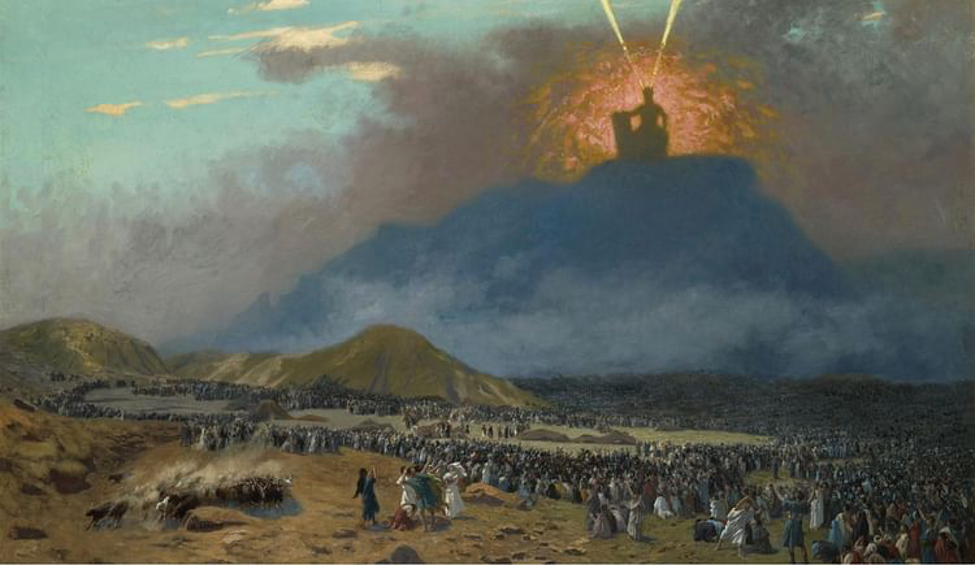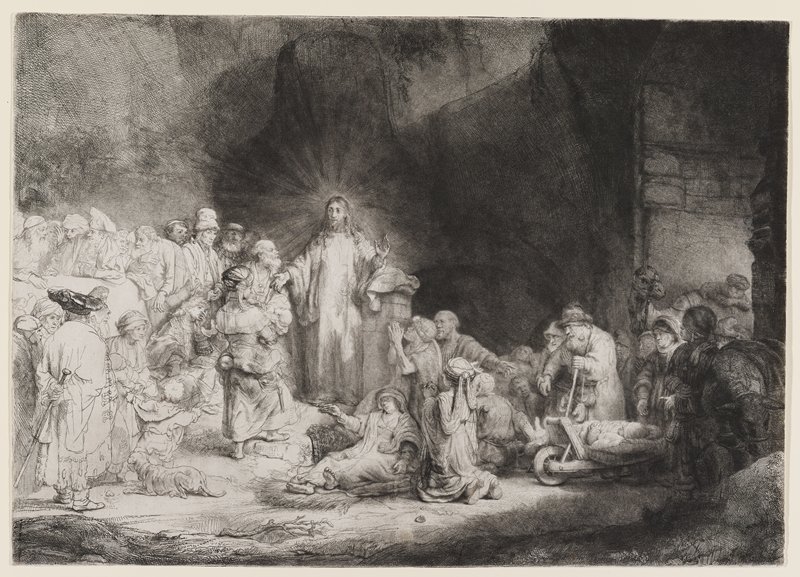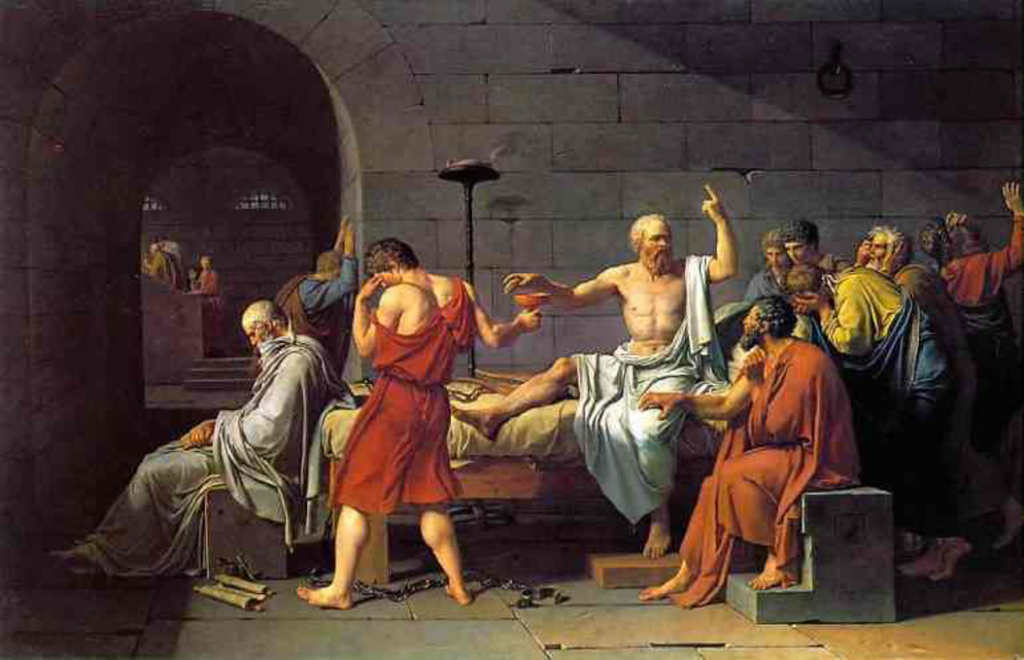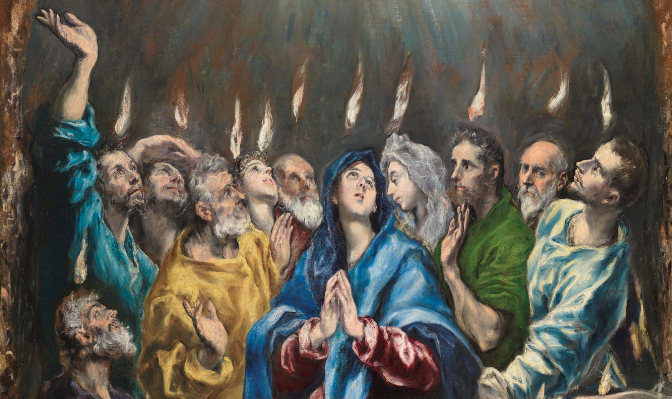In the Gnostic Gospel of Thomas, Jesus says:
“For no one Lights a lamp and puts it under a basket, nor in a hidden place, but rather he sets it on a lamp stand so that everyone who enters and leaves will see its Light.”
This passage implies that that men and women who receive Divine Light have the responsibility to reflect this Light in their words and deeds.

Jean Leon Gerome, 1824-1904
The author of this essay is of the opinion that there are two connotations associated with the term ‘Light.’ The first is that Light refers to Divine Knowledge. This knowledge differs greatly from any other knowledge in that it comes from Higher Mind and is not easily accessible to the average person.
The second connotation is that the term Light alludes to a Divine Presence that dwells and brilliantly shines within an enlightened being. In various esoteric traditions, the term for Divine Presence is Third Eye, the Shekinah, Higher Centers, or the Soul.
How do we go about reflecting light through action?
The Light of Divine Wisdom
Throughout history numerous enlightened beings reflected the Light of divine wisdom in their writings, The limited space in this essay permits the mentioning of only a few of these men and women. They include Homer, Sappho, Plato, Epictetus, Maimonides, Dante, Rabia, Rumi, Shakespeare, and Whitman, to name a few.
The ability to glean divine wisdom from these authors and artists requires initiation into the esoteric keys or inner meanings. “And the disciples came, and said unto him, why speak\thou unto them in parables? He answered and said unto them, because its given unto you to know the mysteries of the kingdom of heaven, but to them it is not given. (Matthew 13:10-11)

(Christ Preaching to the Poor)
Rembrandt, 1649
Reflecting Light through Action
The last segment of this essay will attempt to explain how man reflects the Light through his actions. To aid us in this understanding, we will study the painting entitled, ‘The Death of Socrates’ by the French artist, Jacques Louis David, 1748-1825.
Background to the painting:
Socrates (470/469 – 399 BC) is falsely accused and found guilty of corrupting the morals of the youth of Athens by a bribed jury. His sentence is to die by drinking hemlock, a concoction of wine and poison. On the last day of his life, he invites a few of his disciples into the prison and teaches of. the immortality of the Soul.

The words that Socrates taught, along with a description of how he dies, comes from Plato’s dialogue, “The Phaedo.” Phaedo is sitting at the end of the bed. The papyrus and ink by which he records the events of this day lie on the floor next to him. Like all the disciples, as well as the jailer, a deep sadness shows on his face.
If one was to count the total number of people in the painting it would add up to thirteen. The artist is subtly hinting that this event spiritually relates to another historical event where thirteen attended. That event is the Last Supper.
Reflecting Light in the Face of Death
How did Socrates reflect the Light of the Divine Presence that permeated his internal world?
The person sitting with his hand on the thigh of Socrates is Crito. During the thirty days that Socrates was in prison, Crito visited him. Crito said they could bribe the prison guards so that Socrates could escape without detection. Socrates responded that his escape would serve as a poor example for the youth of Athens. If Socrates did not follow the laws Athens, why should they?
Socrates taught that a true philosopher should look forward to death. The soul, he taught, is truly immortal. Upon death it would separate itself from the body. If the soul was worthy, it would dwell in the real, with the Gods. He added that he had spent his life training the soul to detach itself from the needs of the body.
Let us now focus our attention on the jailer offering the hemlock to Socrates. The jailer can barely bring himself to give Socrates the cup. Though he only knew Socrates for thirty days, he perceived the nobility and, dare I say, divinity of Socrates. There is an ineffable influence that a completely enlightened being has upon mere mortals. It brings us to an internal spiritual state that we have never experienced before.
Note, too, how Socrates is reaching for the hemlock without looking at it. Socrates is not the least bit identified or concerned with drinking the draught. Instead, he is encouraging his students to control their emotions.
Accepting the Will of the Gods
Simultaneously, Socrates is pointing to Heaven, as if to say: this is the will of the Gods. As if it is one’s duty to readily accept the will of heaven rather than be moaning one’s fate.
We will end here with a final word. Socrates is one of many enlightened beings throughout history who spent their lives to attain and manifest the gift of Light. It is the author’s hope that the words of this essay inspire the reader to strengthen their search for this gift.
Benjamin Yudin has taught ancient religions and Fourth Way ideas for several decades. For related articles in FourthWayToday.org, see https://fourthwaytoday.org/category/sharing-light/.

Romeu Marcilio da Silveira
Fogo Sagrado, uma forma da energia inteligente e viva. Conhecida na antiguidade como “Àgua Viva”, “Àgua Lustral”, Àgua de Ambrosia”.